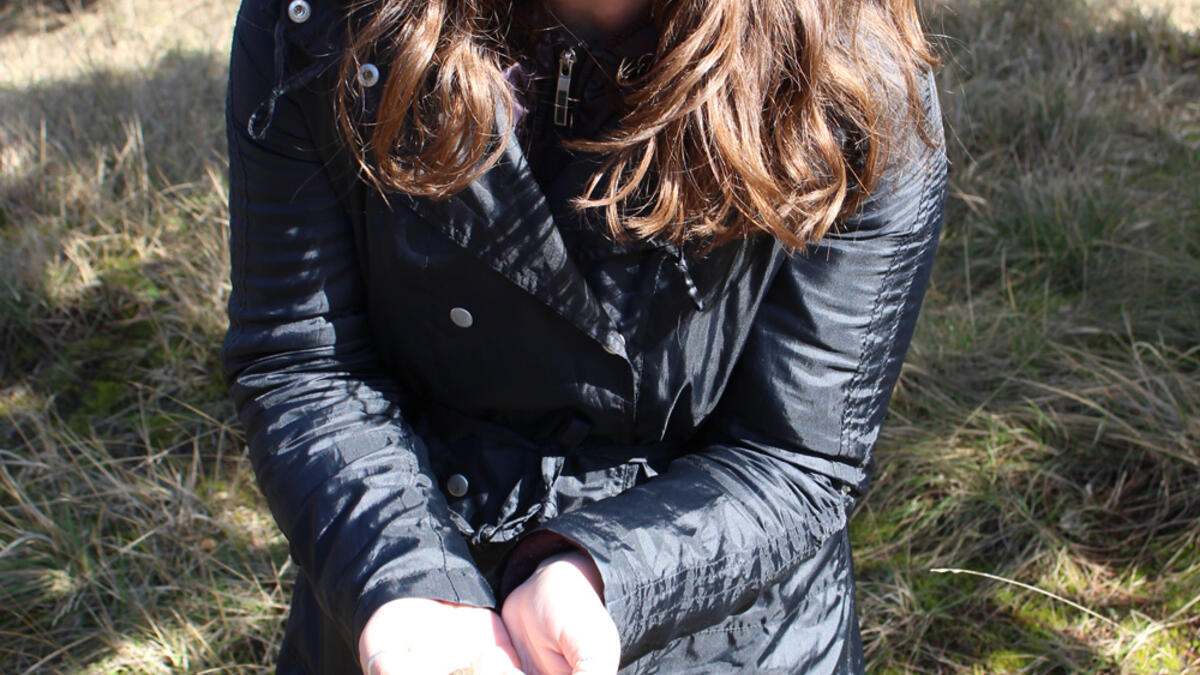Hands-on semester abroad in Italy solidifies academic path for ASU nutrition major

Maggie Matzinger learned the cultural significance of truffles, and how to hunt them in the rolling hills of Umbria.
Maggie Matzinger, a College of Health Solutions nutrition major at Arizona State University, has just completed her semester in Perugia, Italy where she participated in the Food and Sustainability Studies Program (FSSP) offered by the Umbra Institute, an American study abroad program, in partnership with the ASU Study Abroad Office.
“Looking at this semester as a whole, every workshop and every field trip really showed us the Italian identity and let me experience the Mediterranean diet,” said Matzinger, who has learned to approach food and its nutritional value from new perspectives.
Matzinger shared that she now views the Mediterranean diet as more of an American construct and that she learned a lot about developing a healthy lifestyle and sustainable living habits through the FSSP and its various accompanying workshops. A key characteristic of the FSSP is that all courses include a series of co- and extra-curricular activities as a supplement to the topics discussed in class. To develop a deep understanding of various food production and sustainability practices, Matzinger spent her semester cooking an antique Roman recipe in Florence; exploring an ancient pharmacy to learn about the medicinal characteristics of food; touring multiple, family-run, organic wineries and cheese producers; working in a synergistic garden; and visiting local farmers’ markets.
When describing her experiences, Matzinger placed high value on her work with a local synergistic orto, or garden that uses plants that naturally protect and nourish each other, which was part of her course in sustainability and food production in Italy.
“We went to the garden every three weeks and learned about permaculture and how plants work together to boost their eco-system,” she explained. She then went on to describe how straw was used in the garden to naturally reduce the proliferation of weeds, and how onions and garlic, when planted near the other plants, served as a natural pesticide.
When Matzinger was not on cultural excursions or engaging in other out-of-class activities, she was enjoying the engaging discussions that frequently filled the classroom.
“I learned so much from what people of different backgrounds shared,” Matzinger said. “Hearing everyone’s opinion makes you really think about and evaluate different aspects of things on a deeper level.”
She emphasized that such conversation was encouraged by her professors, “They really cared about how we were learning and if we were absorbing everything.” She noted that her class consisted of individuals from different schools and disciplines, which fostered enjoyable and complex discussions about topics such as health, food, and sustainability — often involving diet, genetically modified organisms, and DOP products.
Matzinger concluded that her study abroad experience in Perugia taught her a lot about her own lifestyle and consumption habits, while evolving her views of food and nutrition. She now feels that the importance of studying abroad is to both to get to know oneself on a deeper level, and to learn to ask complex questions that provide renewed confidence in one’s field of study.
The Food and Sustainability Studies Program is an interdisciplinary curricular concentration at the Umbra Institute, an American study abroad program located in the central Italian city of Perugia. Often called a “big university town in a small Italian city,” Perugia is the ideal setting to study abroad in Italy, with fine arts, business, and liberal arts courses.
This program is one of more than 250 options in more than 65 different countries offered through the Study Abroad Office at Arizona State University. Students can study abroad for as short as a week and as long as a year to earn ASU credit fulfilling major, minor, elective or general education requirements. Financial aid and scholarships apply for semester programs. For more information about study abroad program offerings, visit the Study Abroad Office website.
More Health and medicine
Leading the way in wellness: ASU highlighted in The Princeton Review's 2025 Mental Health Services Honor Roll
Being a college student isn’t easy — navigating new routines, people and places can be a challenge, especially if the right…
New Indigenous health dashboard offers robust database for scholars
By Nicole Greason and Kimberly Linn A team at Arizona State University’s College of Health Solutions and …
College of Health Solutions program doing its part during Salute to Service
It wasn’t always easy for Marine veteran Chuck Hale when he first returned to civilian life. But he’ll never forget the help he…